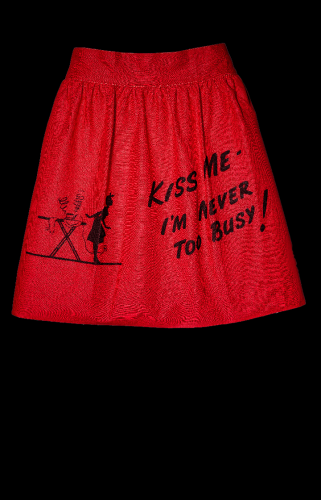
Courtesy National Museum of American History
Break rooms across America display signs imploring staff to clean up after themselves. They read: "Your mother doesn't work here." The National Museum of American History's new exhibition All Work, No Pay: A History of Women's Invisible Labor examines just that: the implied expectation that women will take care of the housework.
This case display, which opened Mar. 4, shows that despite advances in the paid labor force, women continue to be responsible for most of the unpaid work at home.
"There is a historical relationship between unpaid work and the lower wages that women often receive in the workplace," said Kathleen Franz, chair and curator, Division of Work and Industry, who co-curated the exhibition alongside guest curator Kate Haulman, associate professor of history at American University.
The exhibition draws on the museum's deep collection of domestic clothing costumes, many of which have never been on view. Featured objects include pockets, aprons and housedresses meant for domestic work.
All Work, No Pay is meant to stimulate intergenerational conversations about the association of gender and labor and will have a space adjacent to the display where visitors are invited to sit and share stories about who did the work in their mother or grandmother's houses.
Curators plan to staff the conversation table on occasion to engage in discussion and record and preserve oral histories about housework for the museum's permanent collection.